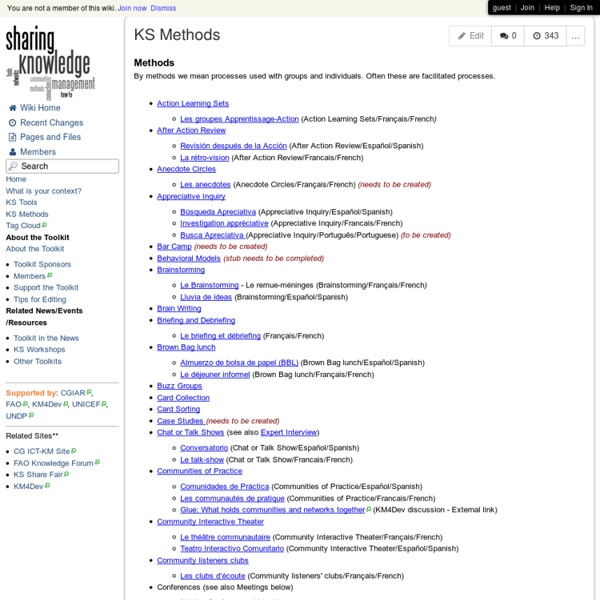KS Methods
Skip to main content You are not a member of this wiki. Join now Dismiss guest Join | Help | Sign In Knowledge Sharing Tools and Methods Toolkit Home guest| Join | Help | Sign In Turn off "Getting Started" Loading...
Topics / CAF - Common Assessment Framework
A common European quality management instrument for the public sector developed by the public sector. The Common Assessment Framework (CAF) is a result of the co-operation among the EU Ministers responsible for Public Administration. A pilot version was presented in May 2000 and revised versions were launched in 2002, 2006 and 2013. A CAF Resource Centre (CAF RC) was created at the European Institute of Public Administration (EIPA) in Maastricht following the decision of the Directors General in charge of public service. It works in close cooperation with the network of CAF national correspondents. The CAF is an easy-to-use, free tool to assist public-sector organisations across Europe in using quality management techniques to improve their performance. The model is based on the premise that excellent results in organisational performance, citizens/customers, people and society are achieved through leadership driving strategy and planning, people, partnerships, resources and processes.
The End of Austerity in Europe?
French presidential candidates Francois Hollande and Nicolas Sarkozy A few months ago, when Occupy movements bloomed across Europe, the absence of any similar uprising in France appeared to be an anomaly in a country infamous for its people’s propensity to take the streets. One explanation was that the presidential election was just around the corner, and that after 10 years out of government, the Left was capable of channeling the French people’s indignation into electoral gains. Indeed, the election’s big surprise was the spectacular surge of Jean-Luc Melenchon’s Front de Gauche (Leftist Front), a coalition of parties to the left of the traditional social-democratic PS (Socialist Party). With an Occupy-friendly platform, the Front went from virtual non-existence to a double-digit finish in the election’s first round, gathering crowds beyond President Nicolas Sarkozy’s wildest dreams throughout the campaign. The Front de Gauche did not, however, make it to the second round.
Related:
Related:



